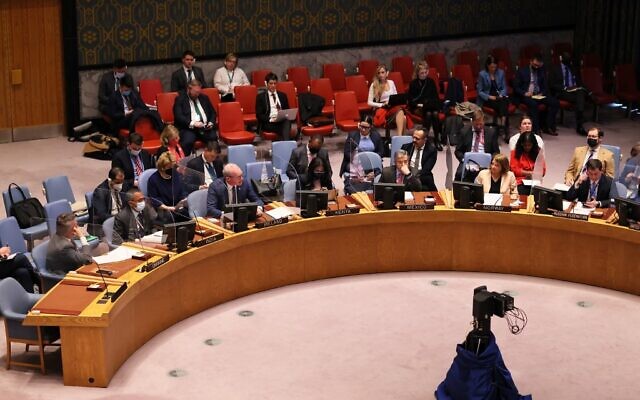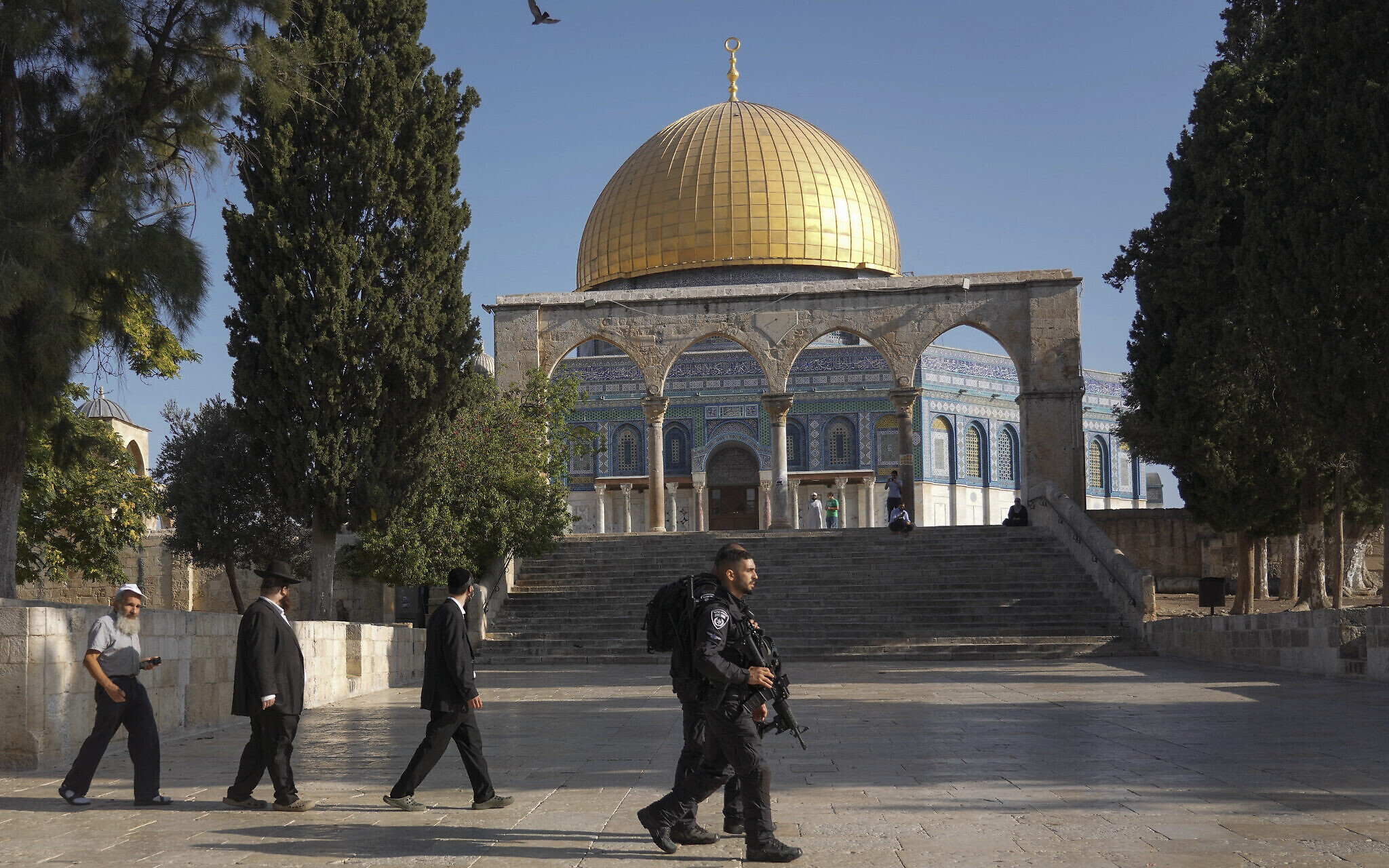The UN Security Council will hold an emergency closed-door meeting on Monday to discuss the latest escalation between Israel and Palestinian Islamic Jihad in the Gaza Strip, Palestinian Ambassador to the UN Riyad Mansour said in a statement.
The meeting was requested by the UAE — a UNSC member — along with China, France, Ireland and Norway, the UAE Foreign Ministry strategic communications director Afra Mahash al-Hameli said in a statement.
“The United Arab Emirates has emphasized the need to restore calm to the Gaza Strip, reduce escalation, and preserve civilian lives,” she said, adding that Abu Dhabi “expresses its deep concern over the current escalation and calls for exercising maximum restraint, to prevent being drawn into new levels of violence and instability.”
During the Monday meeting, Security Council members will discuss “the current developments and ways to support international efforts to achieve a comprehensive and just peace,” the senior Emirati official said.
Israel has conducted numerous strikes in Gaza targeting Islamic Jihad as part of the operation launched Friday to tackle what Israeli leaders said was an immediate concrete threat by the terror group to Israeli communities.
Get The Times of Israel's Daily Edition by email and never miss our top stories
The operation was launched after several days of closures and lockdowns in Israeli communities near the Strip due to the alert of an imminent attack, with the PIJ seeking to avenge the arrest of its West Bank leader earlier in the week.

Members of the United Nations Security Council meet in New York on April 19, 2022. (Michael M. Santiago/Getty Images/AFP)
Israeli leaders said the operation was started because the PIJ had refused to back down from its plans to attack Israeli targets at the border.
Islamic Jihad has fired over 580 rockets toward Israel since Friday, the Israel Defense Forces said Sunday.
Channel 12 news reported, without citing sources, that Israel was trying to muster some level of support for its actions from the UAE, with which it formed official ties in 2020, and Saudi Arabia, with which the Jewish state has quietly fostered an unofficial relationship in recent years, but to no avail.
On Saturday night, Jordanian Foreign Minister Ayman Safadi condemned Israel’s operation in Gaza as an “aggression,” tweeting that he had discussed the matter with UN Middle East envoy Tor Wennesland.
He also stressed that Israeli “provocations” should be prevented at Jerusalem’s Temple Mount on Sunday, as Jews mark Tisha B’Av, which commemorates the destruction of the temples believed to have stood at the site.

Israeli police officers escort a group of Jewish men to visit the Temple Mount, Aug. 7, 2022. (AP Photo/Mahmoud Illean)
Jordan ruled the West Bank and East Jerusalem from 1948 until the 1967 Six Day War, when Israel captured the area and subsequently claimed sovereignty in the Old City and an expanded Jerusalem. Jordan has long maintained that its treaties with Israel grant it custodianship over Jerusalem’s Christian and Muslim holy sites; while Israel has never accepted this claim, it grants day-to-day administration of the Temple Mount to the Jordan-funded Waqf.
Previous Tisha B’Avs have seen over 1,000 Jewish pilgrims visiting the flashpoint site that has been at the center of repeated rounds of Israeli-Palestinian violence in recent years. Israel doesn’t view such visits as a violation of an arrangement known as the “status quo,” which is used to help dictate conduct at the site.
The policy allows Muslims to visit and pray at the Temple Mount, whereas non-Muslims are only allowed to visit. But Palestinians view such large numbers of Jewish visitors as a status quo violation in itself.
Times of Israel staff contributed to this report.


